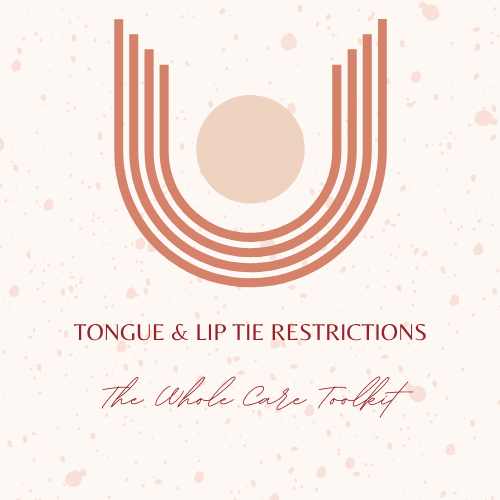Tongue and Lip Ties 101
Postpartum is famously known as a transition period with a lot of woes. But if you’re one of the 4-11 percent of U.S. families whose baby has tongue and lip ties, the initial month after birth can feel like a nightmare before you find the right help and resources. The first step is figuring out if your baby has an oral restriction, so in this post, you’ll learn how to tell if your baby has a tongue or lip tie. From there, there are solutions!
Disclaimer: This post is NOT medical advice and is no substitute for visiting a doctor. Everything shared on NavigatingParenthood.com and within this post is meant as an educational tool to close the “I wish I knew” gap. Please share your new knowledge and any questions with your doctor or specialist.
What does a tongue and lip tie look like?
There are different classes of lip ties and tongue ties, which your specialist will discuss with you. Some ties may be more noticeable, like an upper lip that can’t flange at all, a heart-shaped tongue, a tongue that is completely flat and can’t lift up, a tongue that can’t extend out past the lips, etc. You may notice that if you try to look under your baby’s tongue the tissue that connects the tongue to the rest of the mouth (in completely non-medical terms) is tethered toward the front of the tongue rather than farther back. When looking for a lip tie, you’ll see this same tether as a thick line between the gums and lip. Some come down the gums to where the teeth will be, while others do not. If you see blanching on your baby’s upper lip when you flip it up to look for ties, it is a sign that there is tightness around the lip. Lip blisters and poor feeding are also indicators. Please see a frenulum specialist for an actual diagnosis.
What are the symptoms of a tongue tie and a lip tie?
Aside from poor growth and weight gain, oral restrictions are often the cause of things like a gassy, uncomfortable baby, a baby that has difficulty latching or latching correctly, a baby who pulls away from the breast, Torticollis, flathead, lipstick nipples, painful breastfeeding, and a baby that isn’t meeting milestones. Keep in mind that providers will first look at weight gain as an indicator, but if you have a strong letdown or are able to feed baby well enough they may not have weight issues at all but a tie could still very much be an issue. But tongue ties and lip ties can also contribute to problems when your baby should be babbling, first start to crawl, or when they try solids for the first time.

Who can tell me if my baby has an oral tie?
If you think your baby might have a tongue or lip tie contact a frenulum specialist near you. You can find a list of specialists in your area and read reviews/experiences from other parents in different Facebook groups created specifically for parents to share their experiences (California/Nevada have a really great group with a provider list). Pediatricians are not typically trained in oral ties (some are, but most can’t tell) so I really stress seeing the specialist for this. Some IBCLCs and ENTs have oral tie training and many ENTs do frenectomies but not all. Some parents go through an ENT which means their baby or child is put under for surgery in order to perform a frenectomy. When a frenulum specialist (a specialized dentist) performs the procedure it can be with a cold laser instead and your baby is awake. It takes just seconds! Since a frenulum specialist is a dentist, a good chunk of the tie revision is covered by dental insurance.
What should I do if my baby has a tongue tie or lip tie?
From my own personal experience as a mother of three littles who had these oral restrictions and as a postpartum doula who has worked with experts to support families through this journey, I can tell you that tongue ties or lip ties (oral restrictions) require a whole care approach. Whether or not you revise the oral restrictions with a specialist, there is a lot of work to be done with your care team. If you do decide a revision (called a Frenectomy) is needed, you’ll need to start working with a care team before the procedure and then continue for a long while afterward. Be sure to talk to other providers and parents to find the right specialists for your care team before choosing who will join your family on this journey.
Want to learn more about oral restrictions, who is on the care team, and tips for helping your baby before and after their tie revision? Get the Tongue & Lip Tie Restrictions: The Whole Care Toolkit replays!

Sources: Healthline.com, Milk Matters PT, Dr. Tracy Tran, Dr. Kate Wong, La Leche League


